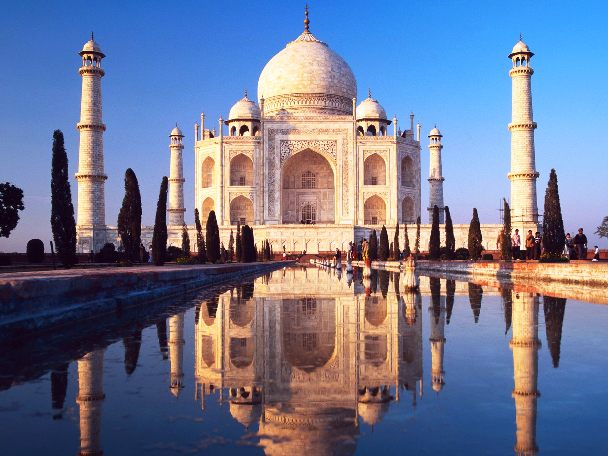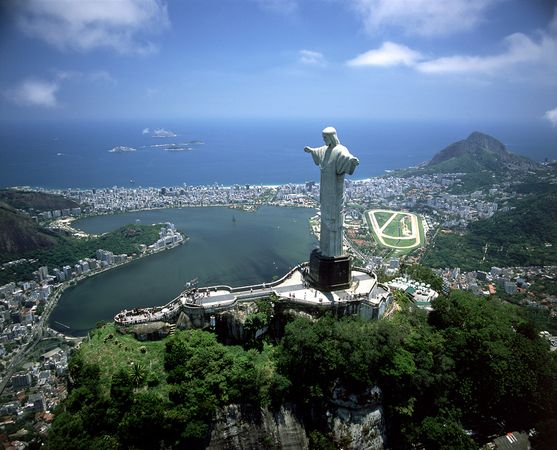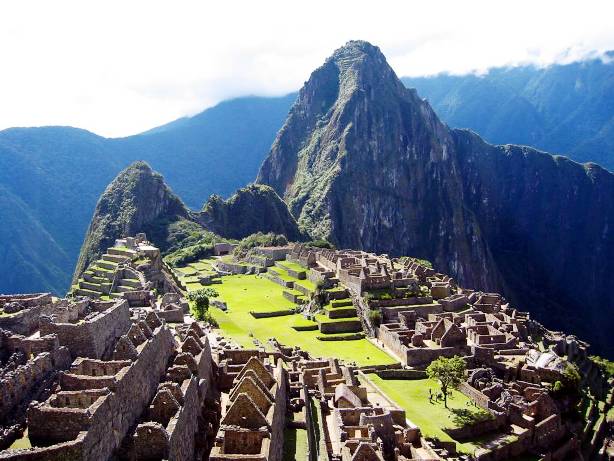In 2007, a six-year initiative culminated in a popularity poll aimed to pick seven modern wonders of the world from a short list of 200 existing monuments. While many of the places that failed to make the cut are highly desirable destinations, the Acropolis of Athens, Angkor Wat and Eiffel Tower included, the selected seven are rightly found at the top of many a traveler’s bucket list.
Think of it as a sort of ideal travel itinerary, What made the list?
Chichen Itza: Chichen Itza is one of Mexico’s most popular tourist destination, and rightfully so. The Yucatan’s grandest archaeological site is Chichen-Itza, a UNESCO World Heritage area of immense cultural significance.
Chichen Itza is perhaps the largest, most famous and most accessible Mayan site, about 125 kilometres west of Cancun and Cozumel. This ancient Mayan ruin, a major tourist stop in Mexico’s Yucatan Peninsula, is a rugged place of soaring pyramids, massive temples, startling carved columns and do-or-die sports fields.
The focal point of the region, an amalgam of an older Mayan city and newer Toltec settlement, is the towering Castillo pyramid, which is fraught with cosmological symbolism. Its four sides contain 365 steps (depicting the solar year), 52 panels (for each year in the Mayan century as well as each week in the solar year) and 18 terraces (for the 18 months in the religious year). Inside, the Castillo is an interesting temple accessible up a narrow stairway.
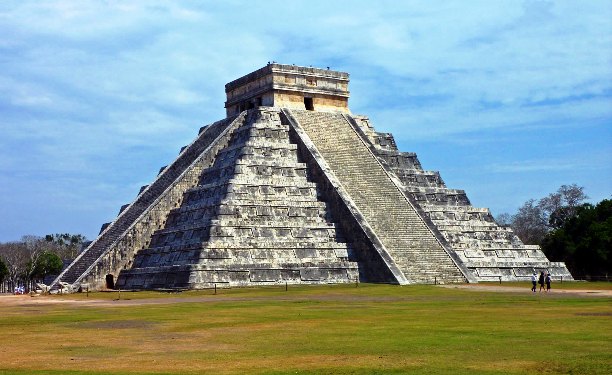
Christ the Redeemer: This wonderful sculpture is situated at the top of Corcovado Hill. The Christ the Redeemer Statue is located in Rio de Janeiro, Brazil, and is one of the world’s best known and most visited monuments. The statue represents Jesus standing over the city of Rio, with arms outstretched, welcoming people from near and far.
The entire monument of Christ the Redeemer measures 38 meters high, with the statue accounting for 30 meters of this. The span of his arms from fingertip to fingertip is 28 meters. A small chapel is housed in the base of the monument, which can fit about 150 people. As a vantage point, the Christ the Redeemer statue offers superb views of downtown Rio de Janeiro, the bay, Sugarloaf Mountain, Copacabana and Ipanema Beaches.This is the highest sculpture around the globe.
The Great Wall was key to protecting agriculture and resisting cavalry of the Huns and other warrior tribes from the north. The advantages of the enormous barrier diminished with the advancement of gunpowder and other weaponry. The wall was originally built of stone, wood, grass and earth. In the Ming Dynasty bricks were produced in kilns set up along the wall. The bricks were transported by men carrying them on their backs, donkeys, mules and even goats had a brick tied to their head before being driven up a mountain.
The Great Wall of China was built over more than two thousand years. Construction on the first section began between the 7th and 6th century BC, and the last work on the wall was done between the 14th and 17th centuries.
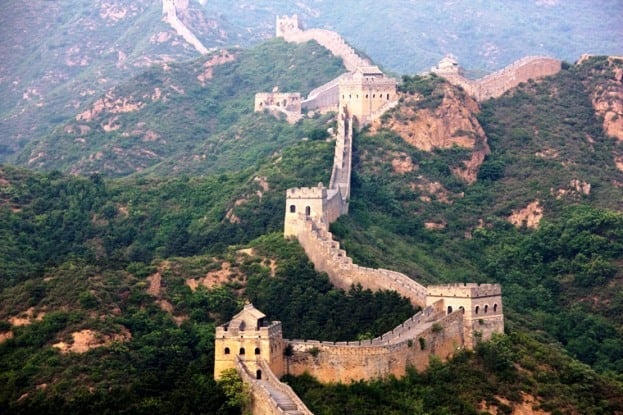
Machu Picchu: 7,000 feet above sea level and nestled on a small hilltop between the Andean Mountain Range, the majestic city soars above the Urabamba Valley below. The Incan built structure has been deemed the “Lost Cities”, unknown until its relatively recent discovery in 1911. Archaeologists estimate that approximately 1200 people could have lived in the area, though many theorize it was most likely a retreat for Incan rulers. Due to it’s isolation from the rest of Peru, living in the area full time would require traveling great distances just to reach the nearest village.
Entrance to the city is through the Siq, a narrow gorge, over 1km in length, which is flanked on either side by soaring, 80m high cliffs. Just walking through the Siq is an experience in itself. The colours and formations of the rocks are dazzling. As you reach the end of the Siq you will catch your first glimpse of Al-Khazneh (Treasury).
Petra has more than 800 typical monuments which consists of structures, tombs, bathrooms, memorial, area, wats or temples, curved income and nearby street which are designed in kaleidoscopic sand rock.
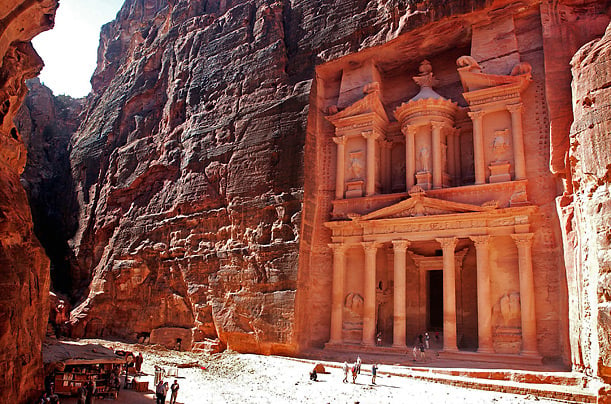
Roman Colosseum: The Roman Colosseum or Coliseum, originally known as the Flavian Amphitheatre, was commisioned in AD 72 by Emperor Vespasian. It was completed by his son, Titus, in 80, with later improvements by Domitian. The Colosseum is located just east of the Roman Forum and was built to a practical design, with its 80 arched entrances allowing easy access to 55,000 spectators, who were seated according to rank. The Coliseum is huge, an ellipse 188m long and 156 wide. Originally 240 masts were attached to stone corbels on the 4th level.
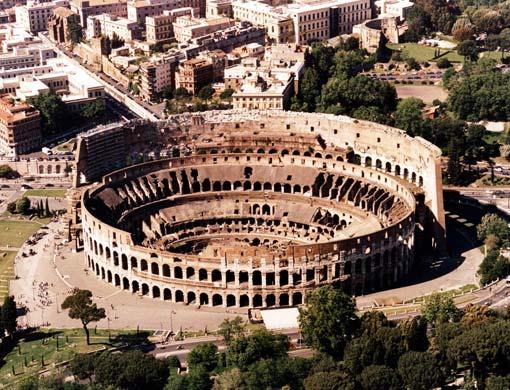
The Taj Mahal is considered the finest example of Mughal architecture, a style that combines elements from Persian, Indian, and Islamic architectural styles. In 1983, the Taj Mahal became a UNESCO World Heritage Site and was cited as “the jewel of Muslim art in India and one of the universally admired masterpieces of the world’s heritage.”
The Taj! An awe-inspiring poetry in marble stands high and serene by the banks of the River Yamuna is an inspiring result of the application of architectural and scientific research.
The tomb laid out in rectangular shape can be approached through an immense gateway with huge arch and alcoves strewn on either side that stands tall and erect, as though guarding something precious. Three other smaller gateways follow the red sandstone towers topped with domes in white marble together make a pretty picture.
